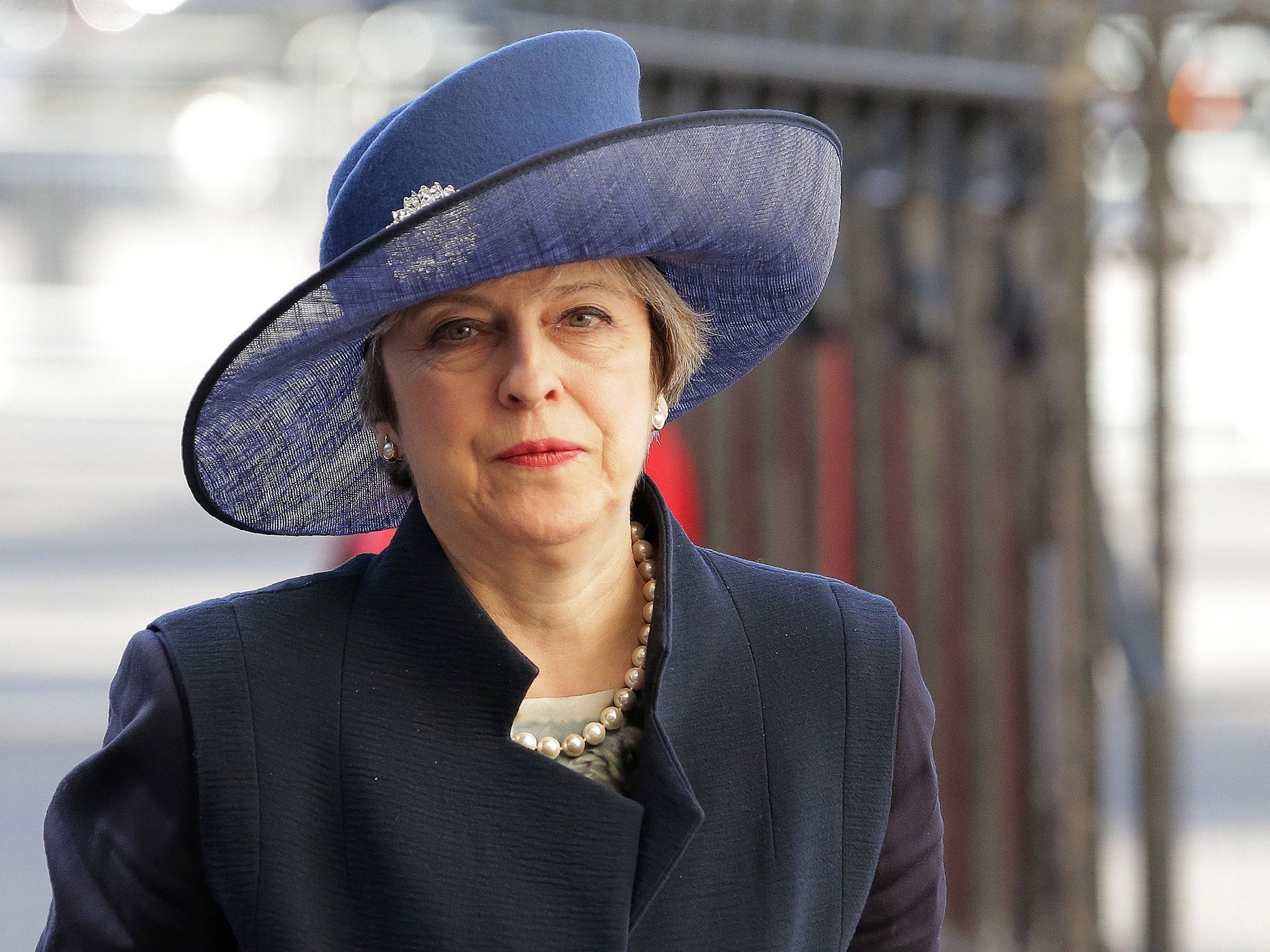Article 50 is going to give Theresa May the powers of a monarch under ‘Henry VIII clauses’
Under rules passed during the English Reformation the Great Repeal Bill will give government ministers powers to repeal legislation without the approval of parliament


Your support helps us to tell the story
From reproductive rights to climate change to Big Tech, The Independent is on the ground when the story is developing. Whether it's investigating the financials of Elon Musk's pro-Trump PAC or producing our latest documentary, 'The A Word', which shines a light on the American women fighting for reproductive rights, we know how important it is to parse out the facts from the messaging.
At such a critical moment in US history, we need reporters on the ground. Your donation allows us to keep sending journalists to speak to both sides of the story.
The Independent is trusted by Americans across the entire political spectrum. And unlike many other quality news outlets, we choose not to lock Americans out of our reporting and analysis with paywalls. We believe quality journalism should be available to everyone, paid for by those who can afford it.
Your support makes all the difference.The last twelve months have been deeply divisive for Britain. Our divisions have allowed Theresa May’s Government – with a small majority – to ride roughshod over parliament. A great irony of the EU referendum is that a cause which eulogised the sovereignty of our parliament has done more than nearly any other event in recent history to endanger that very sovereignty.
Today, Theresa May will trigger Article 50. Parliament has allowed the Prime Minister powers almost unprecedented in peacetime to negotiate what happens next. Unless MPs across all parties start taking their role more seriously, our constitution will be re-written without accountability to the people.
We face a battle for our democracy and our rights, one that will define our country for decades to come.
Last month I resigned from the opposition frontbench. I did that not because I wanted to reverse the referendum result, but because in a democratic country, parliament makes laws and parliament holds the government to account. By allowing the government to trigger Article 50 without any expectations, any guidance or any effective veto over what they decide, we have allowed them carte blanche over a huge range of policies that will affect every individual in this country.
This is dangerous. At times of constitutional uncertainty and social division, parliament needs a greater, not a lesser role, in defining our future.
We have our work cut out, because once Article 50 is triggered, the Government will announce a raft of legislation to reform our environmental and farming protections, our migration, trade and taxation systems. At the heart of this will be the so-called Great Repeal Bill, which aims to transfer EU law into UK law.
The purpose of the Great Repeal Bill is sensible enough – but the devil is in the detail. It seems almost certain that, in order to process thousands of pieces of legislation, the government will try to give itself unprecedented power.
Under 'Henry VIII clauses' – named after statutes passed in the English Reformation, and set aside after Henry's death – government ministers would get powers to repeal legislation without the approval of parliament. Given the quantity of EU law, this could easily include rights, protections and standards that all of us take for granted in our everyday lives.
That means equality legislation, workers’ rights, environmental protection being decided by the Government without proper votes or debates in the House of Commons.
In most countries with a written constitution, such procedures would violate the basic principles of parliament. We have no such advantage. In fact, the way the Great Repeal Bill is debated and concluded will establish precedents which will far outlast this Government, and affect the powers of parliaments for decades.
Today campaign groups Another Europe is Possible and Global Justice Now are calling on MPs to wake up to this threat to our rights. They are calling on the Government to release clear detailed bills as soon as possible, to guarantee decent time for public consultation and parliamentary debate, to curtail Henry VIII powers and impose strict sunset clauses when extraordinary powers cease, and to guarantee that nothing which could reduce human rights or equalities legislation will be delegated by parliament.
Parliament must do a better job at holding the Government to account than it managed in the Article 50 debates. This isn't just for the benefit of those who voted remain in the referendum – it's for everyone who cares about building a better country.
Today I call on fellow MPs of all parties, to stand up for the democratic rights the people of this country have historically fought for and defended. If we fail, and allow Theresa May to assume the powers of a renaissance monarch, our divisions will grow and our future will look bleak. But if we succeed, we can emerge from this period of uncertainty and division, to make this country more democratic and fairer and to better protect and empower its citizens.
Join our commenting forum
Join thought-provoking conversations, follow other Independent readers and see their replies
Comments